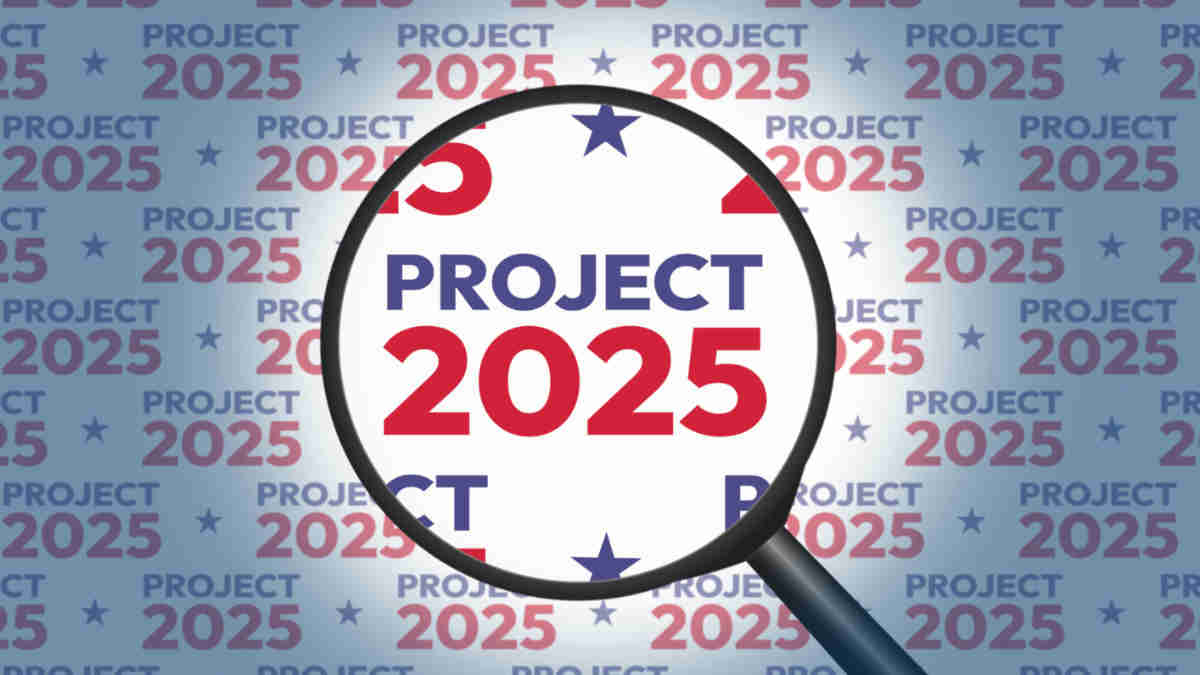The Ethical Investor: What is Project 2025 and how could it impact ESG investors?

Will Project 2025 affect Australia? Picture via Getty Images
- Project 2025 pushes conservative US reforms
- Climate change risks rise under Project 2025
- Australia could face trade, security fallout from Project 2025
In recent months, there has been growing global attention in something called Project 2025.
Project 2025 is a controversial 922-page wish list launched in April 2022 by the Heritage Foundation, a right-wing think tank based in Washington D.C.
The document has been thrust back into the spotlight following Donald Trump’s decisive win in last month’s Presidential election.
The Project’s main aim is to push conservative policies and consolidate executive power under Trump’s leadership.
The proposal advocates for significant changes across US government agencies, including partisan control of the Department of Justice, the FBI, and the FCC (Federal Communications Commission).
Its extreme proposals include dismantling the Department of Homeland Security and abolishing the Department of Education.
Project 2025 also focuses on scaling back regulations on fossil fuels, limiting environmental and climate policies, and taking a strong stance on social issues.
This includes opposing abortion, restricting LGBTQ+ rights, and basically promoting traditional conservative Christian values.
The project has strong links to Trump and his allies, although Trump himself has distanced himself from it this year, calling parts of it “ridiculous.”
How Project 2025 might affect climate change
Project 2025 suggests the US stepping back from multilateral climate cooperation, including withdrawing from agreements like the Paris Climate Accord, and the UN Framework Convention on Climate Change.
If implemented, experts believe these changes could severely harm global efforts to curb climate change, especially considering the US is one of the largest greenhouse gas emitters in the world.
At the moment, climate change is widely seen as a “threat multiplier,” exacerbating geopolitical tensions especially in vulnerable regions.
Project 2025, however, treats climate change as a non-issue for US defence policy, ignoring the role that climate plays in fuelling conflicts and resource shortages worldwide.
Beyond foreign policy, Project 2025’s domestic proposals would roll back key climate protections.
It advocates for reducing regulations on fossil fuels, which could slow down the transition to clean energy in favour of traditional energy industries.
The Center for American Progress said that if enacted, the policies proposed in Project 2025 would seriously jeopardise the world’s ability to avoid the worst impacts of climate change.
“America’s absence would hinder the world’s ability to curb emissions, given its position as the world’s second-largest greenhouse gas emitter and biggest oil and gas producer in history. “
Will Project 2025 affect Australia?
Australia itself was mentioned seven times in the substantive text of Project 2025.
According to our own local think tank, The Australia Institute (TAI), one of the key areas where Australia would feel the impact of Project 2025 is in defence and security.
Project 2025 envisions a more aggressive US military presence in the Asia-Pacific, with a clear focus on countering China’s influence.
For Australia, this could mean a tighter defence relationship with the US, including greater military collaboration and potentially more American troops or assets stationed in the region.
The US may also send political appointees to key diplomatic posts, positioning Australia as a central part of a broader strategy.
On the economic front, decoupling of the US and China is another major recommendation of Project 2025.
The TAI believes this could send shockwaves through Australia’s economy and have “significant, wide-ranging consequences.”
Australia’s trade relationship with China—especially its reliance on coal, iron ore, and other resources—has been a crucial pillar of our economic success.
If the US fully separates from China’s economic orbit, Australia could find itself caught between two superpowers, having to navigate the fallout from a strained global trading system.
The economic isolationism championed in Project 2025 could lead to trade disruptions that could hit Australia’s exports hard, said the TAI.
And then there’s the environment
For Australia, a country already struggling with our own climate action targets, Project 2025 could embolden domestic fossil-fuel interests, said the TAI.
Australia might feel less international pressure to reduce emissions and could even see new opportunities in expanding coal and gas exports to the US.
However, this could also put Australia at odds with its allies and risk exacerbating global climate change—something that could come back to bite, both environmentally and economically.
And if implemented, many believe Project 2025 would make it tougher for Australian ethical investors to track environmental issues.
“Project 2025’s Mandate is iconoclastic and dystopian, offering a dark vision of a highly militaristic and unapologetically aggressive America ascendant in ‘a world on fire'”, concluded the TAI.
Related Topics
UNLOCK INSIGHTS
Discover the untold stories of emerging ASX stocks.
Daily news and expert analysis, it's free to subscribe.
By proceeding, you confirm you understand that we handle personal information in accordance with our Privacy Policy.








